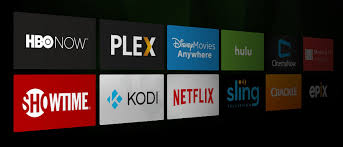
Google with its latest blog post, highlights to reinforce third-party cookies be phased out. Further, confirming they would not be creating an alternative identifier to track individuals across the web – nor use any such identifier within their products once third-party cookies are removed. In simpler terms, this means Google will stop providing one-to-one personalized advertising outside of their owned and operated properties. While this makes the walls even higher inside Google’s own garden, it opens an attractive opportunity for the ad ecosystem to innovate on personalized advertising solutions for the open Internet that rebalance the value exchange for consumers, advertisers and publishers. And that’s exactly what we’ve been working towards at Criteo.
First-party data is the key to the new advertising paradigm
Criteo is well on its way to creating a new network for permission-based advertising on the open Internet, grounded in first-party data, which consumers entrust to publishers and brands. We have been future-proofing our solutions for advertisers, publishers and the consumers they serve by enabling the connection and activation of first-party data in transparent, privacy-safe ways.
Here is a simple illustration of our approach, which we call the Criteo First-Party Media Network:
Graphical user interface, text
Description automatically generated
Above all, we know that consumers want control, choice, transparency and higher value advertising. We also know that advertisers need ROI through personalization that scales while adhering to permissions granted by consumers. And we know that publishers need better monetization through first-party data protection and improved control over their direct relationships with consumers. The aim of the First-Party Media Network is to fulfil each of these needs, balancing the value exchange between stakeholders through trusted first-party data management.
This would be an impossible feat without Criteo’s incredible scale of direct first-party data relationships with commerce marketers and publishers across the globe. As we provide value to both groups, they let us serve in the privileged position of “data steward”, helping to protect, monitor and activate opted-in, first-party data across our network. It is this position that enables cookie-less targeting and retargeting across our commerce media ecosystem.
To make this system work, we know that advertisers and publishers need to be able to enrich and grow their access to first-party data while making it portable across media used to deliver personalized advertising. On top of these connections, both can create and activate cookie-less audiences, including addressable, cohort, contextual and household.
Building the next chapter of personalized advertising
Speaking on the occasion, Taranjeet Singh, Managing Director of South East Asia and India, Criteo, said, “We at Criteo believe that personalized advertising is the most powerful tool to provide the right choices to users while increasing ROI for advertisers. As a guiding principle, we support all transparent initiatives that make advertising work better for everyone involved — consumers, marketers, publishers and the entire ecosystem. As we look into the future of advertising, we envision to work towards a cookie-less world.”
There is no question that companies who enable publishers and advertisers to safeguard consumer rights while connecting first-party data on both the buy and sell side are going to define the next chapter of personalized advertising. We’ll continue to grow our First-Party Media Network and invest in the evolution of advertising beyond third-party cookies through open-source alternatives such as single sign-on and UID 2.0, on top of being a leading voice in the Privacy Sandbox.



